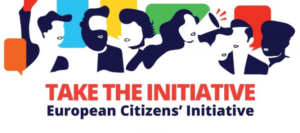Weekly Roundup
 Romania: a Working Agreement signed for the National Financial Education Strategy’s development
Romania: a Working Agreement signed for the National Financial Education Strategy’s development
A Working Agreement on financial education has been stipulated by five Romanian institutions in order to enhance the development of financial education. Primary education, lower and upper secondary education, higher and adult education will be targeted. This Working Agreement will be in effect for 5 years, with a possibility to be extended. The coordination of the whole process will be ensured by a Financial Education Committee.
Read more about this Working Agreement here.
 The European Citizen’s Initiative Forum
The European Citizen’s Initiative Forum
Citizens’ ideas for new initiatives are online now on the European Citizens’ Initiative Forum. It allows sharing his point of view on the future of the European Union. You can propose an idea to allow other users to give you their opinion, but also to comment on the ideas of other users and vote for them.
Take a look here.
 Universal Children’s Day
Universal Children’s Day
On the 20th of November Universal Children’s Day is celebrated. On the occasion of this event the European Commission published the following statement: “Today we stand united in our determination to protect and to promote the rights of all children everywhere.” Moreover, the commission stated that investing in education for all children offers protection and hope for a better future.
Read the European Commission’s statement here.
 Flexible Education with Flexscan
Flexible Education with Flexscan
Flexible education institutions can respond to the diversity within the student population. Students differ in terms of their learning styles, prior education, cultural and personal backgrounds. Flexscan is an instrument for mapping the perceived and desired flexibility of education. It measures the experience of the various parties involved such as: teachers, students and the professional field.
Find more information here.
 Adult Education and Civil Society
Adult Education and Civil Society
According to Melike Okkali, has the idea of civil society been defined and deployed in different ways at different times, depending on what kind of social and political struggles were being fought and won or lost. The meaning of Civil society and its role in adult education is part of the particular arguments and struggles of particular times. , for example, contemporary interpretations in adult education range from conservative formulations to Gramsci’s radical notion of civil society as a site of struggle for moral and ideological hegemony. J. Crowther and I. Martin, from University of Edinburgh have published a research report on the role of civil society and education.
Read the full report here.
 Online Learning Supports Growth and Competences
Online Learning Supports Growth and Competences
‘E-ways for competence development of guidance professionals’ was the name of a workshop organised by Euroguidance. The aim of the workshop was to look into how the development of an international dimension in duidance can be supported through ICT. Participants of the workshop showed their interest in more detailed information about teaching methods, tasks and materials used. The workshop created a discussion about the possibilities to start an online course in European level, to include the whole of Europe in online learning.
Read more about this workshop here.
 Bringing Innovation into Initial Teacher Education
Bringing Innovation into Initial Teacher Education
Support for teachers starting their careers and giving them confidence in their own skills should start from the time they start attending teacher education institutions, often universities. Collaboration among different stakeholders is crucial in creating a coherent approach. ITELab, Initial Teachers Education Lab, is trying to explore possibilities in creating such an approach by a number of projects. The ITELab project is an Knowledge Alliance between higher education institutions and industry. Their aim is to foster innovation and knowledge exchange in initial teacher education to support these careers.
Read more about this project here.
 Never More Needed: Adult Education
Never More Needed: Adult Education
The EPALE UK annual conference on the 15th of November met at a critical time. It is clear that for both the economy and individuals the challenges of industrial, demographic and climate change make the case for investing in education more important than ever. Yet, whilst the importance is clear, it is also clear that times have never been tougher for adults wanting to take up learning. According to Alan Tuckett, the UK should invest more in adult education of all kinds and they should do it urgently. Also, it is important that investments should be spend best to reach under-represented groups and to foster a culture of lifelong learning.
Read the full article here.
Prepared by Dimyana Salib

